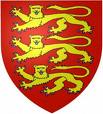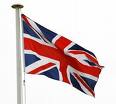THE HISTORY OF ENGLAND




Founded: 886
Population: approx. 51M
Capital: London
Currency: Pound Sterling
England is a country located to the northwest of Continental Europe and is the largest and most populous constituent country of the United Kingdom of Great Britain and Northern Ireland. Its inhabitants account for more than 83% of the total population of the United Kingdom, whilst the mainland territory of England occupies most of the southern two-thirds of the island of Great Britain and shares land borders with Scotland to the north and Wales to the west. Elsewhere, it is bordered by the North Sea, Irish Sea, Atlantic Ocean, and English Channel.
England became a unified state during the tenth century and takes its name from the Angles — one of a number of Germanic tribes who settled in the territory during the fifth and sixth centuries. The capital city of England is London, which is the largest city in Great Britain, and the largest city in the European Union by most, but not all, measures.
England ranks amongst the world's most influential and far-reaching centres of cultural development. It is the place of origin of both the English language and the Church of England, and English law forms the basis of the legal systems of many countries. It was the historic centre of the British Empire. It was the birthplace of the Industrial Revolution and was the first country in the world to become industrialised. England is home to the Royal Society, which laid the foundations of modern experimental science. England was the world's first parliamentary democracy and consequently many constitutional, governmental and legal innovations that had their origin in England have been widely adopted by other nations.

Click Here for VISIT BRITAIN
Click Here for BRITANNIA
Home | Introduction | Task | Process | Evaluation | Conclusion | Extended Learning |




